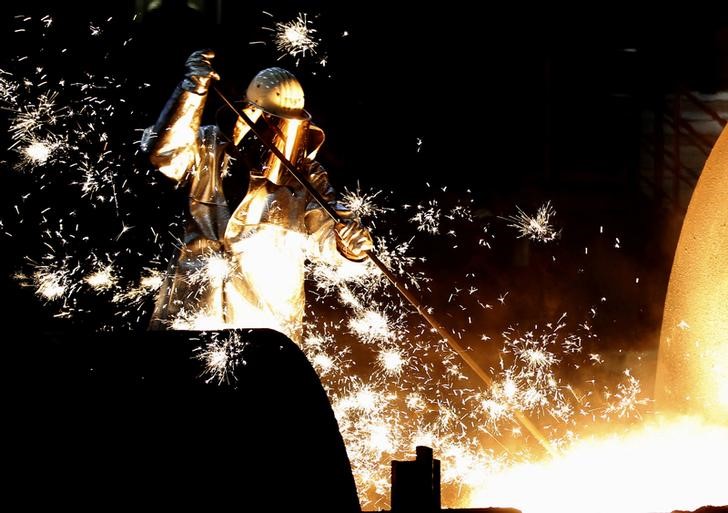Germany is facing a possible recession again after industrial production plunged by the most since the global financial crisis.
The 3.5% slide in December’s output comes a day after a report showed factory orders declining at the fastest pace in more than a decade. That suggests Europe’s largest economy may have contracted at the end of 2019, according to Bloomberg Economics, and dragging itself out of the hole this year has become even more challenging with the coronavirus hitting global business.
Germany has been pummeled by trade tensions, Brexit and the climate-change challenges engulfing its auto industry, and the latest data will dampen budding optimism that it can recover soon. Surveys have shown improved sentiment about the outlook, yet the hard data continues to be worse than economists expected.
GDP figures for the whole economy are due next week and a contraction could prompt renewed calls for fiscal stimulus. Germany’s government, which has run a budget surplus for years, has so far insisted that it’s raising spending but there’s no crisis that would warrant a special package.
What Bloomberg’s Economists Say...
“The data sit oddly against a backdrop of gently improving sentiment in Germany. The fact that production fell across the euro area also suggests part of the weakness reflects a common factor, rather than just a deepening of Germany’s idiosyncratic problems.”
-Jamie Rush, Read his GERMANY REACT
There was further bad news for Europe on Friday, with France reporting a 2.8% drop in industrial output in December, and Spain posting a 1.4% decline. Both readings were far worse than economists had anticipated. The Netherlands added to the gloom, with manufacturing shrinking 1.7%, the most since 2018.
The euro fell, and could close at its weakest since October. It traded down 0.2% to $1.0966 as of 9:36 a.m. Frankfurt time.
Part of the French weakness may have been due to protests and strikes that hit the economy in December and January. Bank of France Governor Francois Villeroy de Galhau said it was a “temporary hiccup.”
“There was a bad surprise in the fourth quarter, which is that the strikes weighed temporarily and negatively on business inventories,” he said on Europe 1 Radio.
Likewise, Germany can attribute some of its poor performance to construction, which sank as companies took holiday breaks. The Economy Ministry pointed to signs of improving sentiment that could brighten industrial production in coming months.
While the U.S.-China trade war has eased though, new risks have appeared. U.S. President Donald Trump has revived his threat of tariffs on European imports, and European Central Bank President Christine Lagarde warned this week that the coronavirus outbreak adds another layer of uncertainty.
Volkswagen (DE:VOWG_p) AG is among German companies from aerospace to car makers that were forced to shut their Chinese plants because of the coronavirus outbreak. Construction equipment maker Wacker Neuson and Daimler warned last month their 2019 performance was worse than expected.
“The data has raised the risk that next week’s GDP data could bring back the R-word for the German economy,” said Carsten Brzeski, chief German economist at ING in Frankfurt. “2019 was definitely a year to forget for German industry.”
